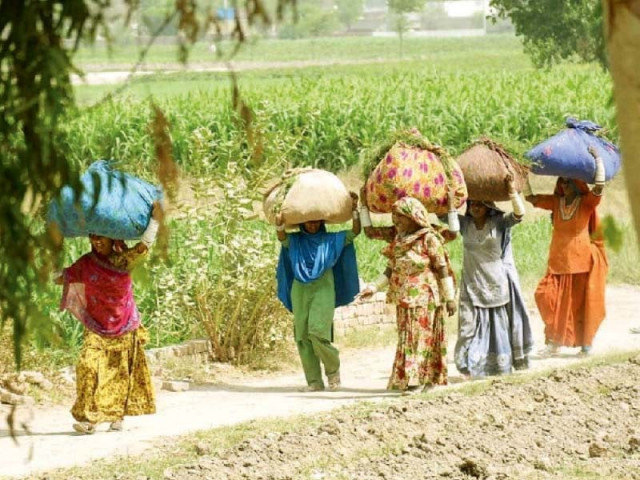LSE sees 2.3% growth, more poverty in 2024
Conference discusses need for 10% of taxes to be spent on lower-income households to eliminate poverty

The Pakistani economy is projected to grow at a rate of 2.3% in FY 2024. The combination of this low growth and high inflation will significantly increase poverty this year and in the coming years.
Approximately 10% of taxes would need to be spent on transfers to lower-income households to eliminate this poverty. This necessity will grow larger over the coming years, implying a significant increase in transfers to households this year and in the future. Programmes like the Benazir Income Support Programme (BISP) will play a crucial role in addressing poverty in Pakistan.
These were the key points discussed at the annual conference on the management of the Pakistani economy, organised by Lahore School of Economics (LSE) on Thursday.
During the discussion, Dr Moazam Mahmood, Seemab Sajid, and Amna Noor presented evidence that inflation is projected to reach 23% in FY2024, a decrease from the high inflation rate of 29% in FY2023. They attributed half of the current inflation rate to the impact of the depreciation of the exchange rate, which stands at 12%. Another 5% is estimated to be caused by increases in commodity prices, especially for energy, with energy prices having surged by a weighted average of 10% over this period. They noted that a larger share of this surge is due to the government’s increased taxation on energy.
Dr Naved Hamid of LSE and Dr Murtaza Syed of the Asian Infrastructure Investment Bank (AIIB) discussed the necessity of high-interest rates to combat inflation. They addressed common arguments against this approach and explained that even if inflation was a result of supply-side factors and if government borrowing was relatively less responsive to high interest rates, one of the most important ways to curtail inflation is still through interest rates. They stressed that interest rate changes will be critically influenced by the fiscal deficit and international commodity prices.
Dr Rashid Amjad and Almazia Shahzad discussed how the stop-go cycle of economic growth in Pakistan is caused by unsustainable fiscal deficits coupled with foreign borrowing. They proposed reversing the roles of the federal and provincial governments as a solution, with the federal government focusing on meeting the external financing gap, accelerating economic reforms, and managing the fiscal deficit, while the provinces concentrate on growth and job generation. They suggested that provinces should incorporate growth and job generation targets into their annual development plans and engage in public-private partnerships to increase productivity and growth.
Dr Azam Chaudhry, Gul Andaman, and Aymen Junaid discussed how stagnant exports are the most binding constraint in Pakistan and proposed an export-led industrial policy. They suggested policy prescriptions such as providing more credit to exporters, utilising Pakistan’s trade and investment officers to promote products, and reducing import tariffs on intermediate goods used by exporters. They highlighted that the balance of trade in goods has been decreasing over time, worsening from $283 million in 2002 to $10 billion in 2022, indicating Pakistan’s struggle to move up the quality ladder and remain in low-value-added products.
Dr Mujtaba Piracha and Dr Muhammad Irfan from the government of Pakistan discussed Pakistan’s role in the World Trade Organisation (WTO) and how it can leverage the forum to benefit the country’s macroeconomic situation. They explored using the WTO framework to stimulate investment and technology transfer from abroad to stimulate growth, highlighting the importance of research and stakeholder engagement in trade negotiations.
Dr Theresa Chaudhry and Dr Nida Jamil discussed the role of trade and trade policy on CO2 emissions in the Pakistani textile sector and the possibility of transitioning to renewable energy sources like solar energy.
Published in The Express Tribune, April 19th, 2024.
Like Business on Facebook, follow @TribuneBiz on Twitter to stay informed and join in the conversation.

















COMMENTS
Comments are moderated and generally will be posted if they are on-topic and not abusive.
For more information, please see our Comments FAQ